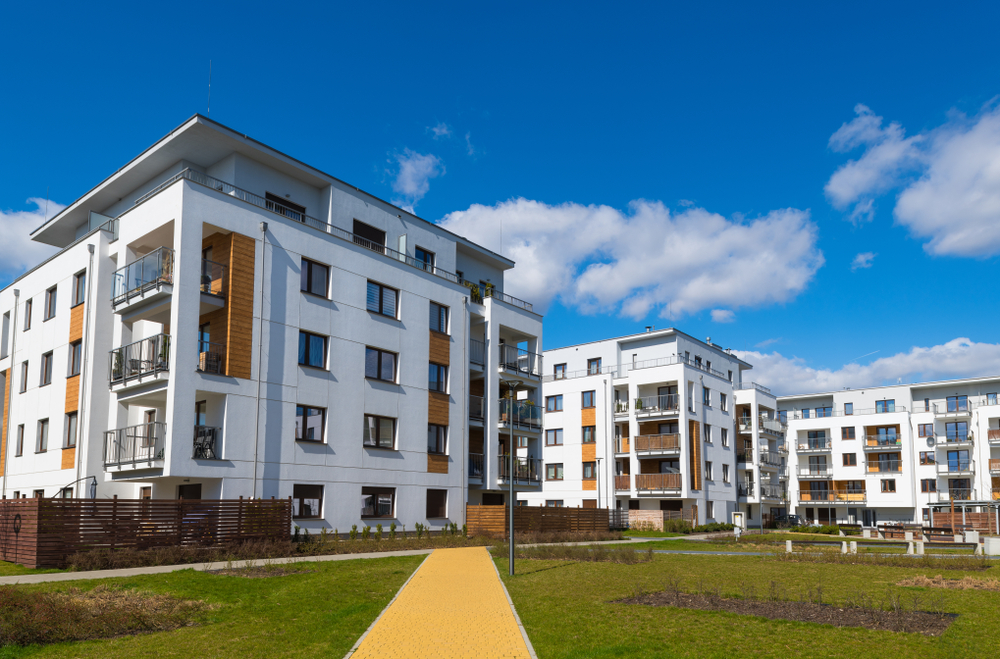Mortgages
Cladding scandal: Builders forced to pay up or face profit hit

Developers and product manufacturers that don’t pay to fix the cladding scandal could be blocked from the housing market.
The tough new rule is part of government plans to protect leaseholders from being billed for historical fire safety and cladding issues affecting blocks of flats. Hundreds of tower blocks were found to be unsafe after fire safety checks following the Grenfell Tower fire in June 2017.
Under amendments in the Building Safety Act, the government has promised that no leaseholder living in medium or high-rise buildings will have to pay a penny for the removal of dangerous cladding.
The move has been described by campaigners as “the most positive step forward” seen so far in the building safety crisis.
Around the UK, about 20,000 high-rise blocks still have the same cladding as on Grenfell Tower while thousands of others have other types of flammable cladding as well as various fire defects.
Campaigners have repeatedly called for the government to fund the removal of dangerous cladding and fix other fire safety defects. But, instead, thousands of leaseholders have been billed eye-watering sums for cladding removal, remediation work and waking watches.
For example, at Millennium Point and Millennium Tower in Salford Quays, Greater Manchester, last year leaseholders were sent bills of £100,000 each to fix defective cavity barriers.
Today’s plans have been announced by secretary of state for levelling up Michael Gove, and will mean cladding companies can be sued and subject to fines for defective products.
For those in industry “not doing the right thing”, the government will be able to block planning permission and building control sign-off on developments, effectively preventing them from building and selling new homes.
The new proposals will see the industry pay to fix historical problems, with commercial and financial consequences for firms that don’t.
Alongside further leaseholder legal protections, courts will also be given new powers to stop developers using “shadowy shell companies”, which make them difficult to trace or identify who they are run by, so they can avoid taking responsibility for their actions.
If passed by parliament, these amendments to the Building Safety Bill will be brought into law.
Gove said: “It is time to bring this scandal to an end, protect leaseholders and see the industry work together to deliver a solution. These measures will stop building owners passing all costs on to leaseholders and make sure any repairs are proportionate and necessary for their safety.
“All industry must play a part, instead of continuing to profit whilst hardworking families struggle. We cannot allow those who do not take building safety seriously to build homes in the future, and for those not willing to play their part they must face consequences.”
Under the proposals, building owners and landlords will be able to take legal action against manufacturers who used defective products on a home that has since been found unfit for habitation. The power will stretch back 30 years and allow recovery where costs have already been paid out.
The amendments will also mean that no leaseholder living in their own home, or sub-letting in a building over 11m, will ever pay a penny for the removal of dangerous cladding.
If the laws are passed by parliament, developers that still own a building over 11m that they built or refurbished – or landlords linked to an original developer – will be required to pay in full to fix historic building safety issues in their property.
Building owners who are not linked to the developer but can afford to pay in full will also be required to put up the money to do so.
In the small number of cases where building owners do not have the resources to pay, leaseholders will be protected by a cap of £10,000 for homes outside London and £15,000 for homes in the capital. This is similar to ‘Florrie’s Law’ that already exists.
Any costs paid out by leaseholders over the past five years will count towards the cap, meaning some leaseholders will pay nothing more.
The UK Cladding Action Group welcomed the amendments, saying that “the penny seems to have dropped with the government that leaseholders are the innocent party”.
However, the group raised concerns about the Florrie’s Law leaseholder cap, pointing out that £10,000 or £15,000 are “enormous amounts to many ordinary people across the country”.